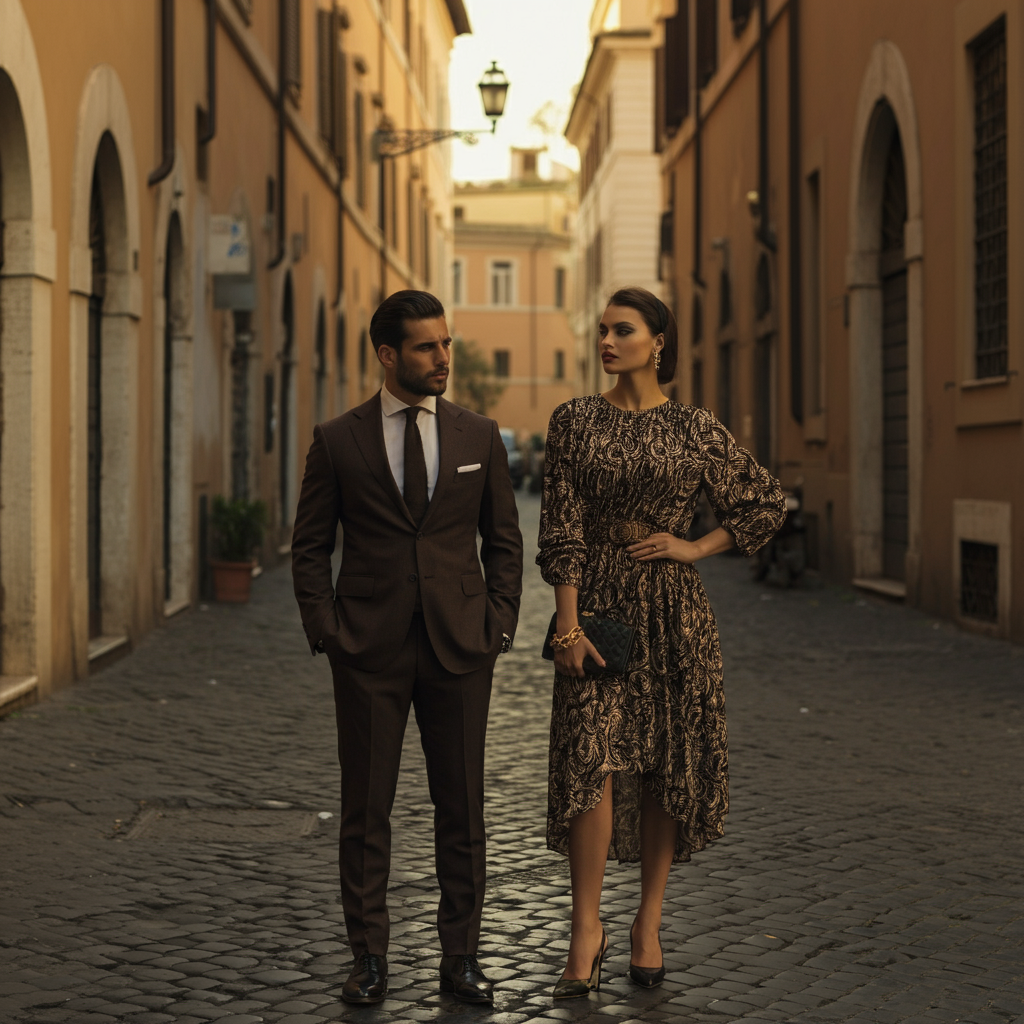
Introduction
Few names have as much resonance in the world of fashion as Italian fashion. Fashion lovers have loved this design for years because of its classic elegance, exquisite craftsmanship, and meticulous attention to detail. Italian fashion has influenced how we dress, inspiring both designers and consumers, from Milan’s thriving fashion week to the streets of Rome. This blog will examine the history, essential components, current trends, and advice on incorporating Italian fashion into your wardrobe, regardless of your level of familiarity with the industry.

The Rich History Behind Italian Fashion Style
Understanding the history of Italian fashion is essential to appreciating it fully. Since the Renaissance, Italy has led the world in both elegance and craftsmanship. Luxurious textiles like silk, velvet, and brocade, which are still essential to Italy’s design heritage, came into being at this time. The 15th-century Italian nobility set the standard for centuries of exquisite elegance by displaying lavish attire as a sign of affluence.
In the 1950s and 1960s, Italy solidified its position in the fashion industry as we move into the 20th century. Italian craftsmanship flourished in the post-war period, particularly in the areas of footwear and tailoring. Italian businesses became linked with glamour after celebrities like Sophia Loren and Marcello Mastroianni introduced Italian designs to a worldwide audience. Milan became as the focus of ready-to-wear collections, while Florence became the site of upscale fashion displays.
Iconic Moments in Italian Fashion History
-
The Birth of “Made in Italy”
The “Made in Italy” mark, which stood for unmatched quality and design, was cemented in the 1980s. The world stage was dominated by labels such as Armani and Dolce & Gabbana. -
The Revival of Italian Tailoring
In the second part of the 20th century, classic tailoring made a comeback thanks to suits made by companies like Brioni and Zegna that blended traditional methods with contemporary designs. -
Red-Carpet Influence
Italians, who frequently dressed Hollywood’s aristocracy, influenced our perception of red carpet fashion. Consider Valentino’s famous red dresses to be a symbol of elegance and grace.
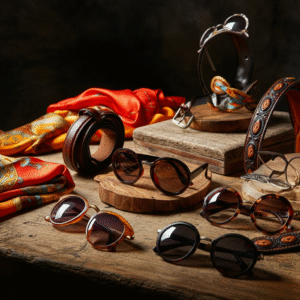
Key Elements That Define Italian Fashion Style
Italian fashion is known for its deliberate, yet apparently carefree, approach to attire. Let’s examine its distinguishing features in order to comprehend its timeless appeal.
1. Quality Over Quantity
The importance of materials and craftsmanship is at the heart of Italian fashion. Quality always comes first, whether it’s the fine stitching in custom suits or the buttery leather used in shoes. This strategy supports the notion that investing in classic wardrobe pieces is preferable to chasing fads.
2. Tailoring is Everything
A defining characteristic of Italian fashion is exquisitely crafted apparel. Italian designers have perfected the art of tailoring for both men and women, producing everything from perfectly cut pants to form-fitting blazers. For example, a well-fitting suit can quickly change your appearance and increase your self-confidence.
3. Subtle Elegance with a Pop
Italians are remarkably adept at striking a balance between subtle refinement and striking elements. A scarf with a striking pattern could add flair to a neutral ensemble, while a simple white blouse could suddenly have elaborate lace cuffs. Italian fashion is distinguished by its attention to subtleties in style.
4. Timeless Color Palette
Even while Italians like bright colors, their basic clothing frequently has a timeless, neutral color scheme. Consider earthy tones, blacks, whites, and greys with sporadic bursts of blue, yellow, and red.
5. Accessories as Statements
Italian fashion places a strong emphasis on purposeful accessorizing. An oversized pair of sunglasses, sleek leather shoes, or a vintage handbag may turn an ensemble from average to legendary.
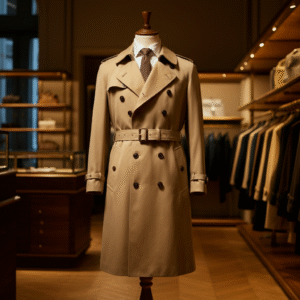
Modern Trends in Italian Fashion Style
Italian designers have always been innovative, even as they respect tradition. While being loyal to its origins, Italian fashion style continues to develop and adapt to modern trends.
1. Sustainability Meets Luxury
Eco-friendly materials and ethical production procedures are only two examples of the more sustainable practices that many Italian firms are implementing. Luxury brands like Prada and Gucci are spearheading this movement by launching eco-friendly collections without sacrificing their distinctive style.
2. Streetwear Influences
Tailored suits and expensive dresses are no longer the only aspects of Italian fashion style. Italian designers of the younger generation, such as Off-White’s Virgil Abloh, have introduced streetwear into the country’s historically elegant style. Imagine bold monograms, leather, and big silhouettes.
3. Reimagining Classics
Classic pieces are being redefined by contemporary Italian designers using novel viewpoints. For instance, the classic trench coat is redesigned with oversized cuts or unusual textiles.
4. Playful Patterns and Prints
Even while Italian fashion style is frequently thought of as minimalist, the runways of today feature fun prints, such as geometric motifs and elaborate floral embellishments. Particularly well-known for its extravagant prints with Sicilian influences is Dolce & Gabbana.
Iconic Italian Brands That Shaped Fashion
A discussion on Italian fashion style wouldn’t be complete without mentioning some iconic brands. These labels have become pillars of Italian design and have influenced fashion worldwide.
-
Gucci
Famous for opulent patterns, bold logos, and a sense of drama, Gucci has become one of the most sought-after luxury brands globally. -
Prada
Prada marries minimalism with avant-garde artistry. Known for high-quality leather goods and contemporary silhouettes, its designs exude sophistication. -
Versace
The epitome of boldness, Versace is famed for its striking prints, vibrant colors, and daring designs. -
Armani
Giorgio Armani introduced a revolution in power dressing with his clean, structured suits. The label remains a go-to for timeless pieces. -
Dolce & Gabbana
This brand thrives off an overtly Italian aesthetic, often drawing inspiration from Sicily’s traditions, colors, and landscapes.
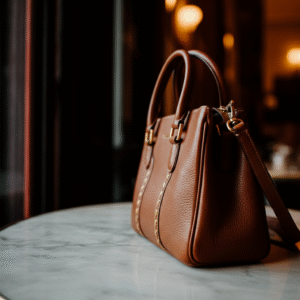
How to Incorporate Italian Fashion Style into Your Everyday Look
To channel Italian fashion style, you don’t need a plane ticket to Milan. You may add a touch of classic elegance to your clothing by using these tips:
1. Start with Tailoring
Purchase at least one item of clothing that is well-tailored, like slacks or a jacket. Your appearance is immediately improved by custom tailoring, which guarantees the ideal fit for your body.
2. Follow the Rule of Simplicity
Simplicity is key to Italian fashion style. Select high-quality fabrics, neutral hues, and clean lines. For instance, a traditional ensemble consists of a clean white shirt and slim slacks.
3. Accessorize Wisely
Add dimension to your outfit with a luxurious belt, leather loafers, or a silk scarf. These small touches make a big impact.
4. Play with Textures
To add depth to your ensembles, combine materials like silk, leather, and cashmere. Wearing a soft cashmere turtleneck with a leather jacket is one example.
5. Experiment with Pops of Color
Even though neutrals are popular, don’t be afraid to use striking colors as accents. Cobalt blue shoes or a crimson purse can offer flair without taking over the ensemble.
6. Invest in Signature Pieces
Choose items that will remain stylish and high-quality over time, whether it’s a timeless trench coat or traditional leather shoes.
7. Confidence Is Key
Lastly, without confidence, no Italian ensemble is complete. You will automatically radiate sophistication if you carry yourself with pride.
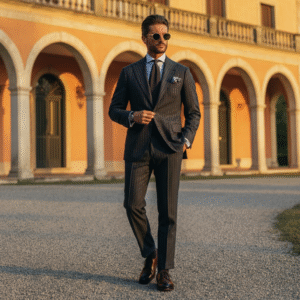
Final Thoughts
More than just clothes, Italian fashion style is a way of life that values uniqueness, elegance, and quality. It’s about embracing the art of dressing as a part of everyday life and donning each piece with confidence and purpose. Italian fashion style is a never-ending source of inspiration, whether it is drawn from the iconic Milanese labels or the carefree styles seen on Roman streets. You may improve your style and add a little extra luxury to each day by adding even a small bit of this look to your clothing.
Remember that true elegance is in the details, invest in craftsmanship, and take inspiration from the icons. When it comes to Italian fashion style, how you wear something is more important than what you wear!





Leave a Reply